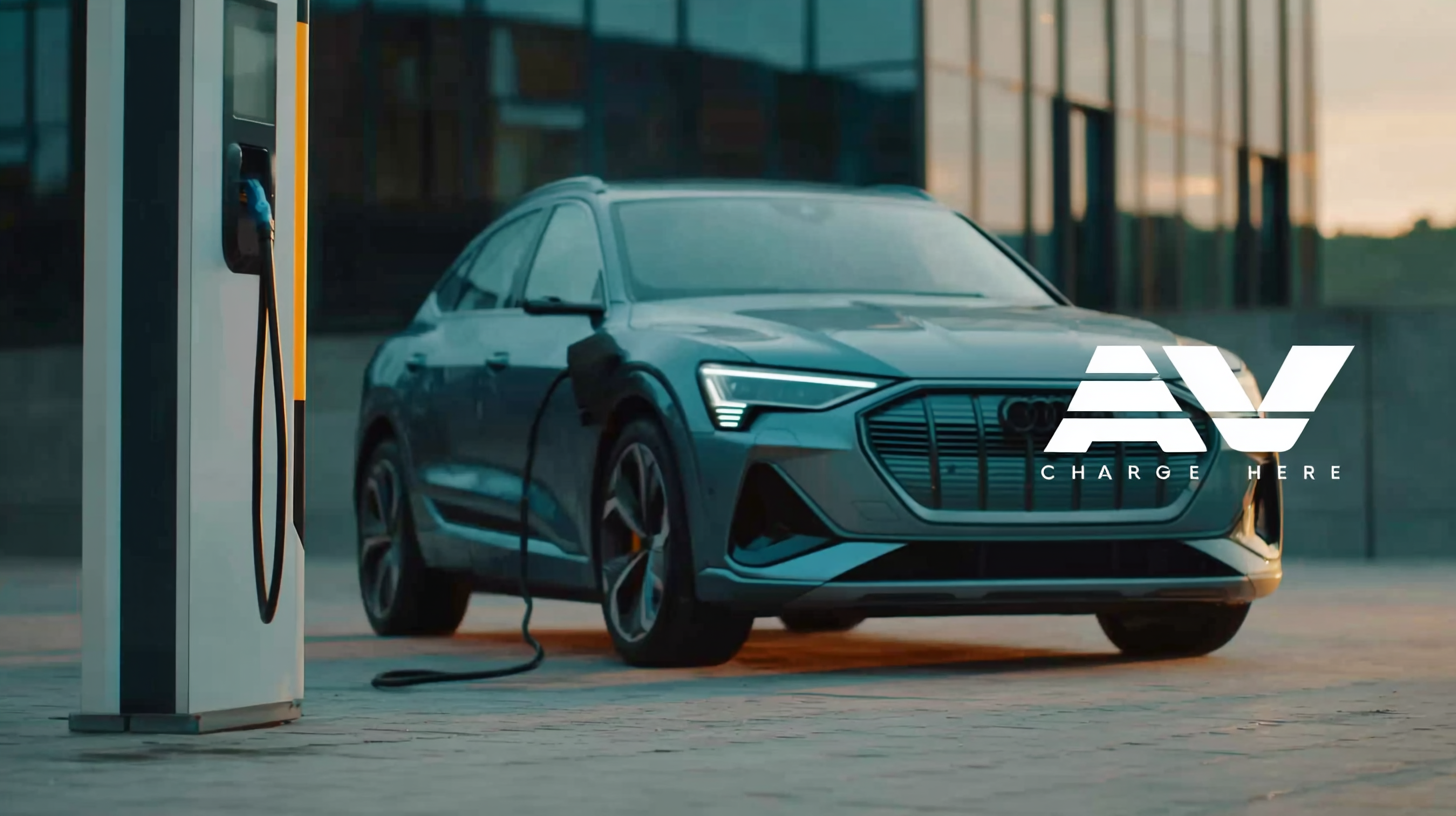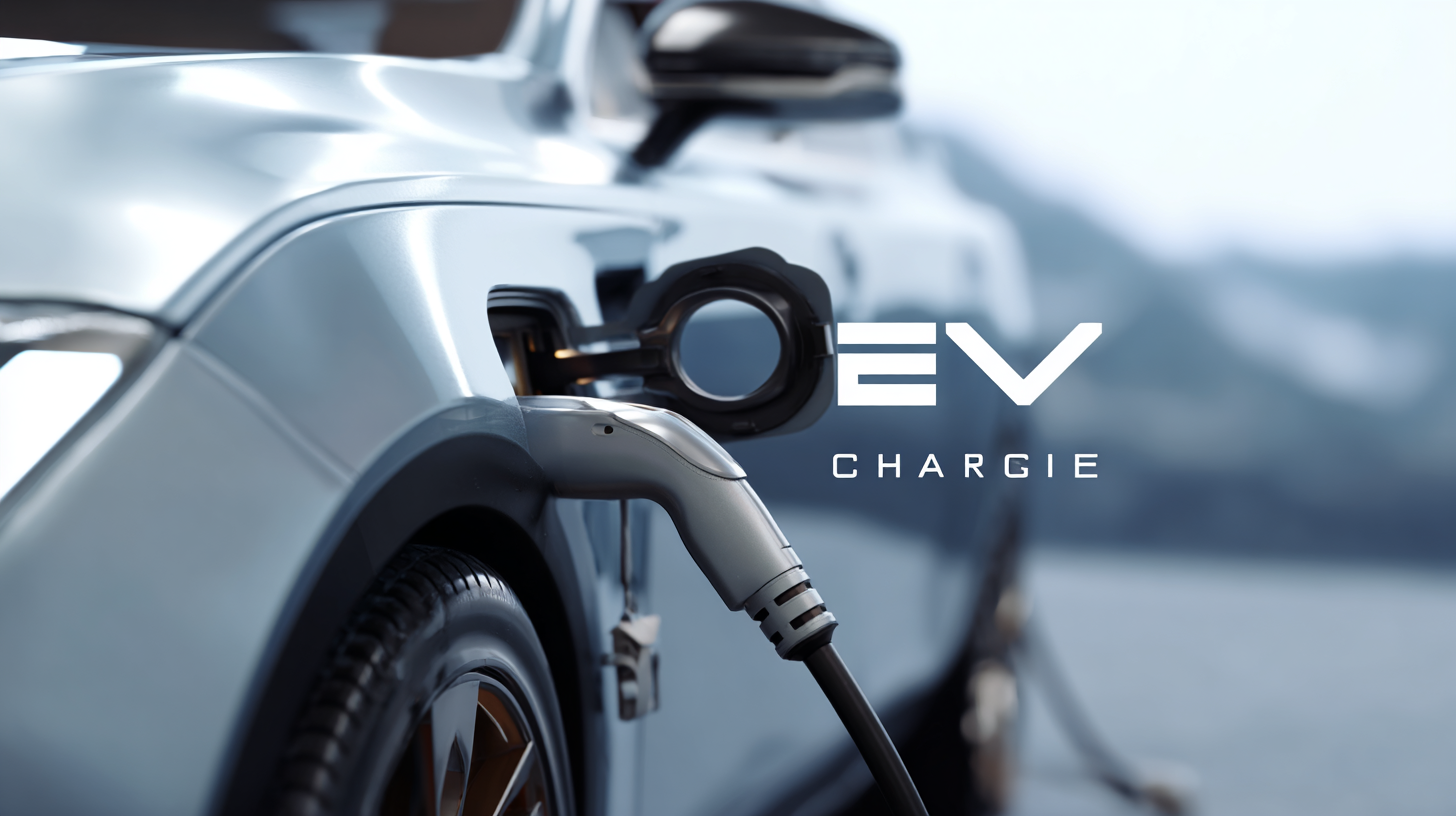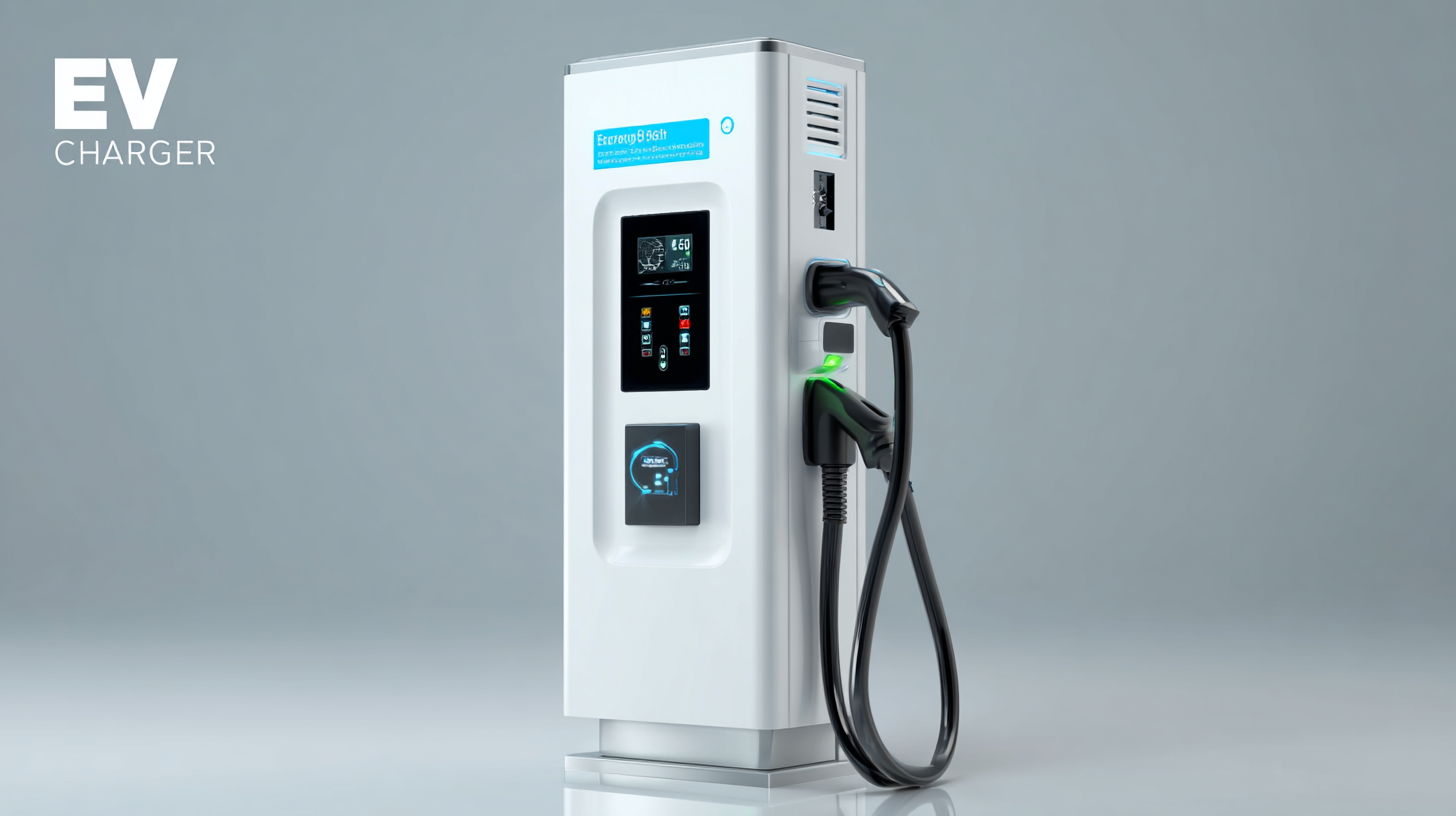Insights into the Best Ev Charger Innovations Shaping the Future of Sustainable Transportation
As the electric vehicle (EV) market continues to surge, with estimates projecting that global EV sales will reach 26 million units by 2030 (McKinsey & Company), the demand for reliable and innovative EV chargers is more critical than ever. The variety of charging solutions available is expanding, from fast chargers that dramatically reduce downtime to smart charging stations that optimize energy use and costs. In fact, the global EV charger market is projected to grow from $7.5 billion in 2021 to nearly $30 billion by 2028 (Research and Markets), highlighting the significant role these technologies play in promoting sustainable transportation. This blog will explore innovative EV charger solutions that are driving this transformation, showcasing industry applications and practical "how-to" insights that stakeholders can leverage to navigate this evolving landscape effectively.

Exploring the Latest Charging Technologies for Electric Vehicles
The rapid evolution of electric vehicle (EV) technology has driven an equally impressive transformation in EV charging systems. Recent advancements in charging technologies are paving the way for a sustainable transportation future. One of the most notable innovations is the development of ultra-fast charging stations, capable of delivering significant power in a matter of minutes. These charging solutions not only enhance convenience for drivers but also support the increasing number of EVs on the road, effectively reducing range anxiety and improving the overall user experience.
In addition to speed, smart charging technologies are revolutionizing how we approach energy use. By integrating with renewable energy sources and leveraging advancements in energy management systems, smart chargers can schedule charging sessions during off-peak hours, optimizing energy consumption and reducing costs. Features such as vehicle-to-grid (V2G) technology also allow EVs to export energy back to the grid, further promoting sustainability. These innovations reflect a shift towards a more interconnected and efficient energy ecosystem, ultimately shaping a greener future for transportation.
Revolutionary Fast Charging Solutions: Redefining Convenience
The recent advancements in fast charging solutions are revolutionizing the electric vehicle (EV) landscape, making sustainable transportation not only appealing but also highly convenient. One of the most exciting innovations is the development of ultra-fast chargers that can replenish an EV's battery to 80% in just 20 minutes. This leap in charging technology significantly diminishes range anxiety, encouraging more drivers to transition to electric vehicles.
When choosing a fast charger, consider the location and compatibility. Look for stations strategically placed along major travel routes and in urban centers to ensure availability during long trips. Tips for maximizing your charging experience include exploring mobile apps that locate fast chargers and checking charge speeds before you arrive. This knowledge empowers you to plan your routes efficiently and maintain the charge required for your journey.
As the EV market continues to grow, integration of smart technology into charging stations is another noteworthy trend. Features like real-time updates on charger availability and dynamic pricing will soon be standard. Additionally, smart chargers can optimize energy consumption based on grid demand, further contributing to sustainability. Embracing these advancements today will enhance not just individual convenience but also support a broader movement towards greener transportation solutions.
Innovations in EV Charger Technology
Smart Charging Infrastructure: Integrating AI for Efficiency
With the rapid shift towards electric vehicles (EVs), the importance of smart charging infrastructure has become increasingly evident. Integrating artificial intelligence (AI) into charging systems can significantly enhance efficiency and user experience. AI-driven algorithms can analyze real-time data to optimize charging schedules based on demand patterns, ensuring that energy consumption is balanced and cost-effective. This not only reduces strain on the grid during peak hours but also encourages the use of renewable energy sources, further promoting sustainability.

Moreover, AI technology can facilitate seamless communication between EVs and charging stations. By utilizing machine learning, these systems can predict charging needs, suggest optimal charging times, and even provide dynamic pricing based on energy availability. Such innovations empower users to make informed decisions about when and where to charge their vehicles, resulting in reduced waiting times and improved accessibility to charging infrastructure.
As we continue to integrate AI into our transportation networks, the potential for a more efficient, sustainable future becomes increasingly attainable, paving the way for a cleaner planet and a brighter tomorrow.
The Role of Renewable Energy in EV Charging Innovations
The role of renewable energy in electric vehicle (EV) charging innovations is becoming increasingly vital as we move towards a sustainable transportation future. Recent advancements, such as the development of bidirectional chargers in Massachusetts, showcase how innovative solutions can enhance grid resilience while utilizing renewable sources. These technologies not only facilitate effective charging but also transform electric vehicles into energy resources that can provide power back to the grid when needed.
In addition, collaborations between companies focusing on solar-powered charging solutions highlight the potential for integrating renewables directly into the charging infrastructure. By deploying solar energy in combination with EV charging stations, owners can access clean energy, promoting affordability and reducing reliance on fossil fuels.
**Tip 1:** When considering a home EV charger, opt for solutions that incorporate renewable energy sources for a more eco-friendly approach.
**Tip 2:** Stay informed about local initiatives and pilot programs aimed at enhancing EV charging infrastructure, as they often provide incentives for early adopters.
**Tip 3:** Explore smart charging options to maximize cost savings while supporting a greener energy grid.
Insights into the Best EV Charger Innovations Shaping the Future of Sustainable Transportation
| Innovation Type | Description | Renewable Energy Role | Impact on Sustainability | Charging Speed (kW) |
|---|---|---|---|---|
| Solar-Powered Chargers | Chargers that utilize solar panels to generate electricity for charging EVs. | Harnesses sunlight to produce clean energy directly for EV charging. | Reduces reliance on fossil fuels, leading to lower carbon emissions. | 22 |
| Smart Charging Stations | Stations that optimize energy use based on real-time demand and availability. | Integrates with renewable energy sources to supply power when available. | Maximizes renewable energy usage, decreasing environmental impact. | 50 |
| Wireless Charging Technology | Inductive charging systems that allow EVs to charge without plugs. | Can be powered by renewable energy sources integrated into charging pads. | Encourages convenient, frequent charging, leading to increased EV usage. | 25 |
| Vehicle-to-Grid (V2G) Technology | Allows EVs to return electricity to the grid when not in use. | Balances energy supply by utilizing stored renewable energy from EV batteries. | Supports grid stability and renewable energy integration. | 30 |
| Fast Charging Networks | A network of interconnected high-speed EV chargers. | Designed to be powered primarily by renewable energy sources. | Enhances the practicality of EVs, promoting widespread adoption. | 150 |
Future Trends: What’s Next for EV Charger Developments?
The landscape of electric vehicle (EV) charging infrastructure is poised for significant transformation, driven by an increasing demand for sustainable transportation solutions. According to industry reports, the global market for EV smart chargers is on the rise, fueled by the growing prevalence of electric vehicles and the pressing need for robust charging infrastructure. The market is projected to grow from approximately $141.77 million in 2024 to an estimated $348.97 million by 2032, reflecting a compound annual growth rate (CAGR) of 6.5%. This growth highlights the crucial role that smart charging technology will play in shaping the future of mobility.
As we look towards the future trends in EV charger developments, advancements in charging power options are particularly noteworthy. Innovations are emerging for both battery electric vehicles (BEVs) and plug-in hybrid electric vehicles (PHEVs), with charging outputs categorized into two main segments: below and above 20 kW. An increase in demand for higher power outputs will drive further innovations in charging technology, enabling faster and more efficient charging processes. Furthermore, the expansion of EV infrastructure across various vehicle types—including passenger and commercial vehicles—across different regions will be essential to meet the anticipated growth in EV adoption through 2025-2032. This trend will undoubtedly contribute to a more sustainable transportation ecosystem.

